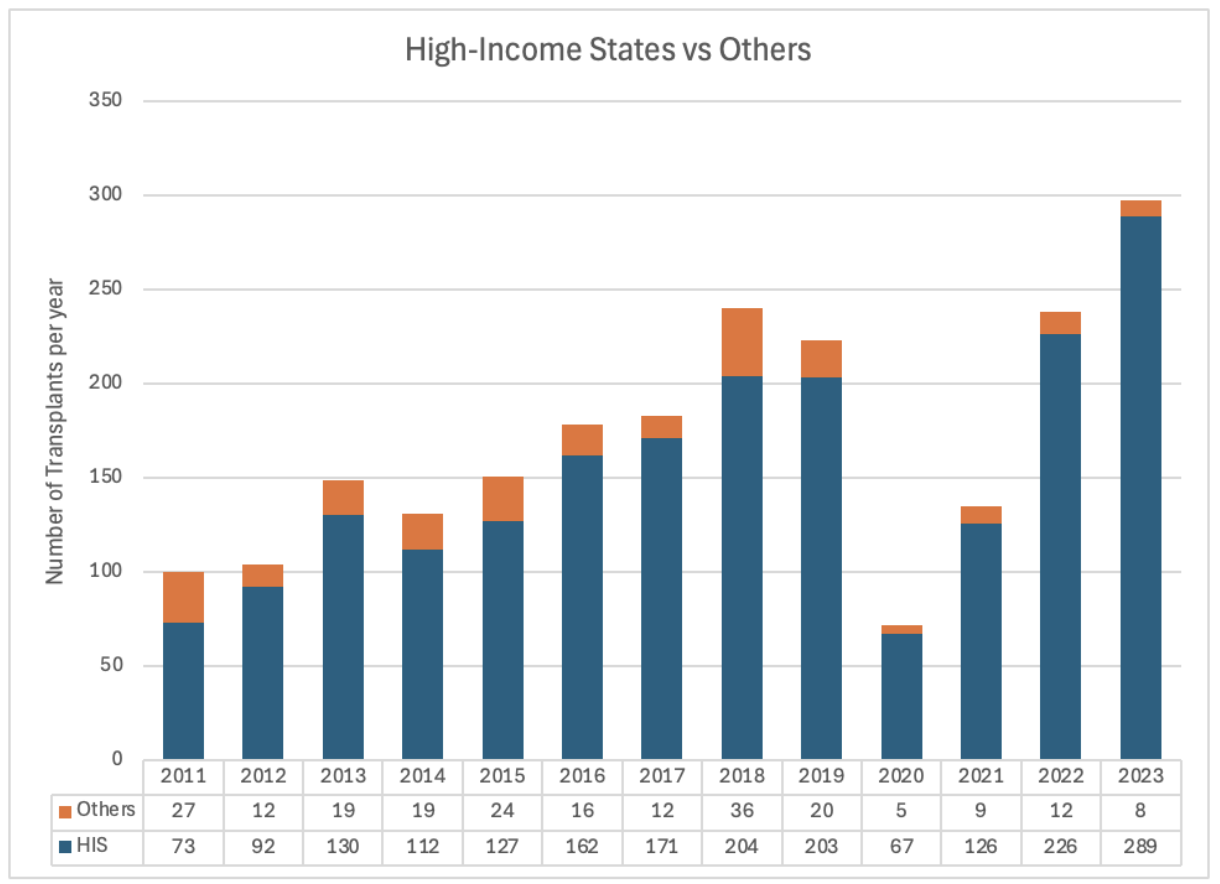"A Tale of Two Mexicos: Liver Transplant Disparities Between High and Low-Income States"
Oscar Delgado-Casillas1.
1Universidad Anáhuac Mexico, Ciudad de México, , Mexico
INTRODUCTION: Despite being one of the most important countries in Latin America, Mexico's transplant availability is unequally distributed across the country. High-income states (Mexico City, Jalisco, and Nuevo León) represent approximately one-third of the GDP and also concentrate much of the country's political, cultural, and healthcare resources. Most of the specialist transplant centers and trained surgeons are hosted in these 3 states. Meaning that there are significant disparities when compared with the rest of Mexican states.
METHODS: We performed a retrospective observational study collecting data from Mexico's National Transplant Registry (CENATRA). We gathered the liver transplants performed between 2011 and 2023 in the 32 federal Mexican entities. Transplants were classified into high-income state transplants (performed in Mexico City, Jalisco, and Nuevo León) and transplants performed in the other 29 states. A Mann-Whitney U test was used to compare these two groups, with statistical significance defined as p<0.05.
RESULTS
Mexican surgeons performed 2,201 liver transplants between 2011 and 2023. 1,982 of them (89.9%) in high-income states, and 219 (10.1%) in other states. Mexico City had 1,332 transplants, followed by Jalisco with 331 and Nuevo León with 319. The Mann-Whitney U test showed a statistically significant difference (U = 169.0, p = 1.62 × 10⁻⁵). The yearly median transplants were 130 (95% CI: 120.38-187.46) in high-income states and 16 (95% CI: 12.69-21.54) in the rest of the states.
CONCLUSION
The severe disparity in liver transplant access reflects Mexico's economic and infrastructure centralization. Highlighting these problems can help to guarantee equitable access to life-saving transplantation procedures across the country. Specialized medical centers, training programs, highly qualified surgeons, and public awareness are needed.

The WebApp is sponsored by:

If you have any questions during the meeting, please go to the registration desk. Our emails will be monitored sporadically.
REGISTRATION DESK OPENING TIMES
Thursday, May 1, 2025, 07:00-17:30 Friday, May 2, 2025, 07:00-12:00